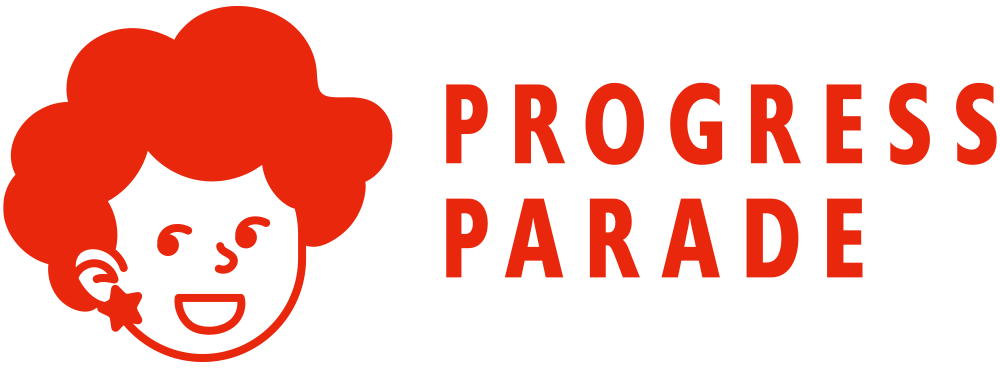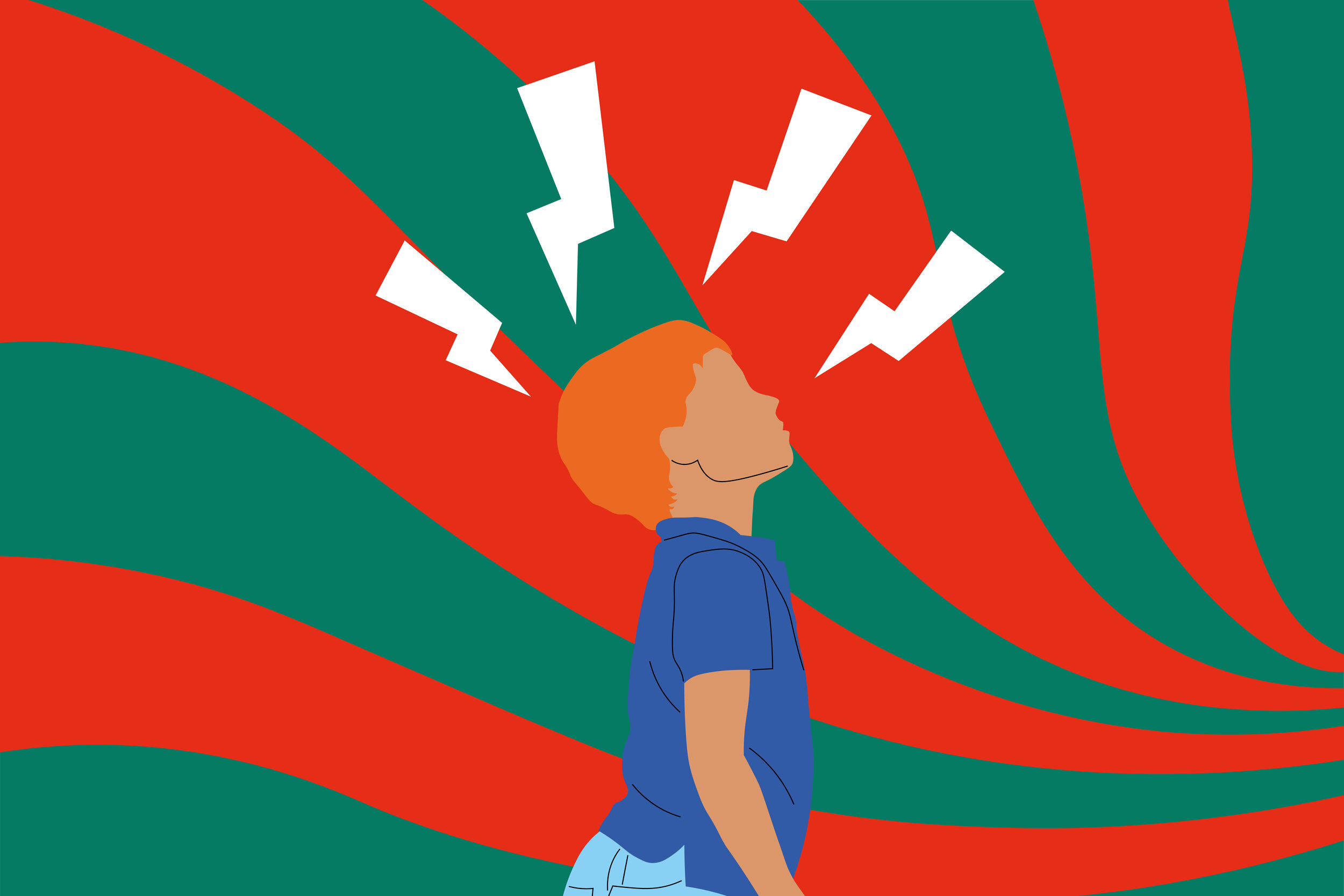Does ADHD prevent you from doing well in school?
When a parent, child, or even adult receives a diagnosis of ADHD for the first time, there are a whole range of emotions that accompany this news. Some feel relief as they finally have a name for all the perceived failings that have been occurring. Others are afraid of the negative implications or being viewed negatively for having a disorder. Some worry that there is something wrong with them or they are somehow flawed because of their diagnosis. Many wonder how to function at school and eventually get a job. Many feel a combination of these feelings.
At Progress Parade, we see many parents and students wondering, either out loud or in the backs of their minds, “Will ADHD prevent me or my child from doing well in school?”
ADHD as a superpower.
While it’s tempting to view ADHD as a flaw, when looked at in a different way ADHD is seen as a superpower. Individuals with ADHD often have above average intelligence, are creative problem solvers, out of the box thinkers, passionate/knowledgeable on specific topics, resilient, engaging, passionate, funny and driven. Many successful celebrities, world leaders and business people got where they are because of and not in spite of their ADHD.
Harnessing the superpowers of ADHD takes a lot of self-knowledge and work! Without that, ADHD can cause trouble, particularly in situations that require conformity or strict rule following. While ADHD traits can have a negative impact on individuals in school, the first step is recognizing symptoms that may be limiting a person's ability to succeed. These symptoms are not the same for everyone and can vary in different contexts. With some awareness, students can access tools, resources and support to mitigate the symptoms that are having a negative impact.
“Many successful celebrities, world leaders and business people got where they are because of and not in spite of their ADHD.”
Strategies for Young Learners with ADHD.
While symptoms of ADHD can be present as early as 3 years old, most individuals are formally diagnosed in early elementary school. Early on, some or many of the following challenges may be noted: difficulty sitting on the rug or at the desk, blurting out during class instruction or silent work time, difficulty keeping hands to self or maintaining personal space and difficulty with transitions. For these young learners, teacher support is critical to helping children to stay engaged and be successful. When kids with ADHD are getting the support they need, they are better able to demonstrate common strengths like advanced academic abilities and positive peer relationships.
Some strategies that help a child be successful in school include:
Visual Schedules: Though kids with ADHD crave novel stimuli, they also do better when they have a clear understanding of expectations. Time is something that is very intangible, especially for kids who can get hyper focused on a task. Schedules help children visualize their day and know what to expect. Checklists/to-do lists also provide a tangible way for kids to grasp their progress throughout the day.
Individual Breaks: While most children in elementary school can maintain attention for about 15-30 minutes at a time, individuals with ADHD have about half the attention span, especially when working on non preferred tasks. Helping children be goal directed increases productivity. Providing smaller goals/rewards helps maintain attention. Use of personal timers helps this as well.
Use of fidgets: Remember kids with ADHD are sometimes hyperactive and stimulation seeking. The use of fidgets, wiggle seats and kickers help them remain moving in a more socially appropriate way.
Blurt Alerts: This is a fun and subtle way to help kids be aware of their impulsivity. Teachers can make a “game” out of decreasing the number of blurts in a day and can help kids extinguish a behavior that may otherwise have negative social consequences.
“When kids with ADHD are getting the support they need, they are better able to demonstrate common strengths like advanced academic abilities and positive peer relationships.”
Strategies for Older Learners with ADHD
As students get older, the demands for organization and work completion shift from environmentally supported (think teachers structuring time) to individually driven. Kids are expected to take more ownership of their behavior and to manage expectations from multiple teachers who all structure their classes differently. They have to learn and remember how to write things down, charge/bring their computers, plan their time after school, write complex papers, synthesize long/boring texts, remember to study for tests, plan for projects and try to avoid all the distractions that exist in and out of school. There are a lot of strategies that teachers can teach all students in a class, then reinforce in small groups or individually as necessary. If we prioritize teaching executive functioning skills for students in late elementary school and early middle school, many of the common failures can be avoided later on.
Here are some tips for older learners:
Get it out of your head: If you need to remember something, there are all sorts of tools to help including:
Use an assignment notebook or planner! Most schools provide these for free. Write everything down and look at it first thing at home so you know what needs to be done.
Use Google Classroom or other Learning Management System: The teachers often post assignments online! There are many places to check and be sure all work is completed. Don’t just “hope” you’ll remember.
Use your phone: Most kids have phones now and can set reminders, create calendar events, email teachers and manage their screen time to minimize distractions when focusing on school.
Take notes: Often teachers' lectures can seem boring and ADHD brains tend to wander off. By taking notes, it helps keep the body active and getting sensory input. Plus, you have a great reference tool if you forget something.
Use the adults to help: Individuals with ADHD often become overwhelmed with all the work and expectations placed on them. It is difficult to create a plan if we are anxious and emotional. Our brains are even less likely to use planning and organization strategies when we are charged with nerves. If teenagers can recognize this in themselves, they can ask for help! There are adults at home and school who can help break down tasks into smaller parts and help things feel more manageable.
Stick to your after school routine: No one likes to do chores or homework, but it’s every kid's responsibility. We are less likely to put off undesirable tasks if our bodies and minds know what to expect. Sit down and create a plan from 3 pm-10 pm to account for your time. You can build in fun and screen time but also have the necessary limits so that you don’t forget your obligations. Be sure to give yourself more than enough time to wind down and get a full night's sleep.
If I have ADHD, can I do well in school?
Every single human has strengths and weaknesses. We are all on a life journey to maximize our talents and accommodate for our shortcomings. Individuals with ADHD can often feel like their battle is longer and harder than neurotypical peers. There can be a lot of shame and emotional consequences that come when symptoms of ADHD make school especially challenging. Reframing the diagnosis and self-concept, through cognitive behavioral therapy, self-reflection and other coping skills can help individuals with ADHD process their experiences and learn from them. ADHD does not have to be the defining part of a students’ life. ADHD will not prevent you from doing well in school, but you likely will have to do some work to figure out what tips, tricks, tools and supports help you succeed! We do not recommend just hoping things will get better without taking intentional steps towards growth which will likely lead to a longer, more discouraging school experience. Remember you are not alone and have access to a variety of resources that will help you on your path to achieve your goals, in school and beyond!
Contact us today and talk with the professional ADHD tutor!









